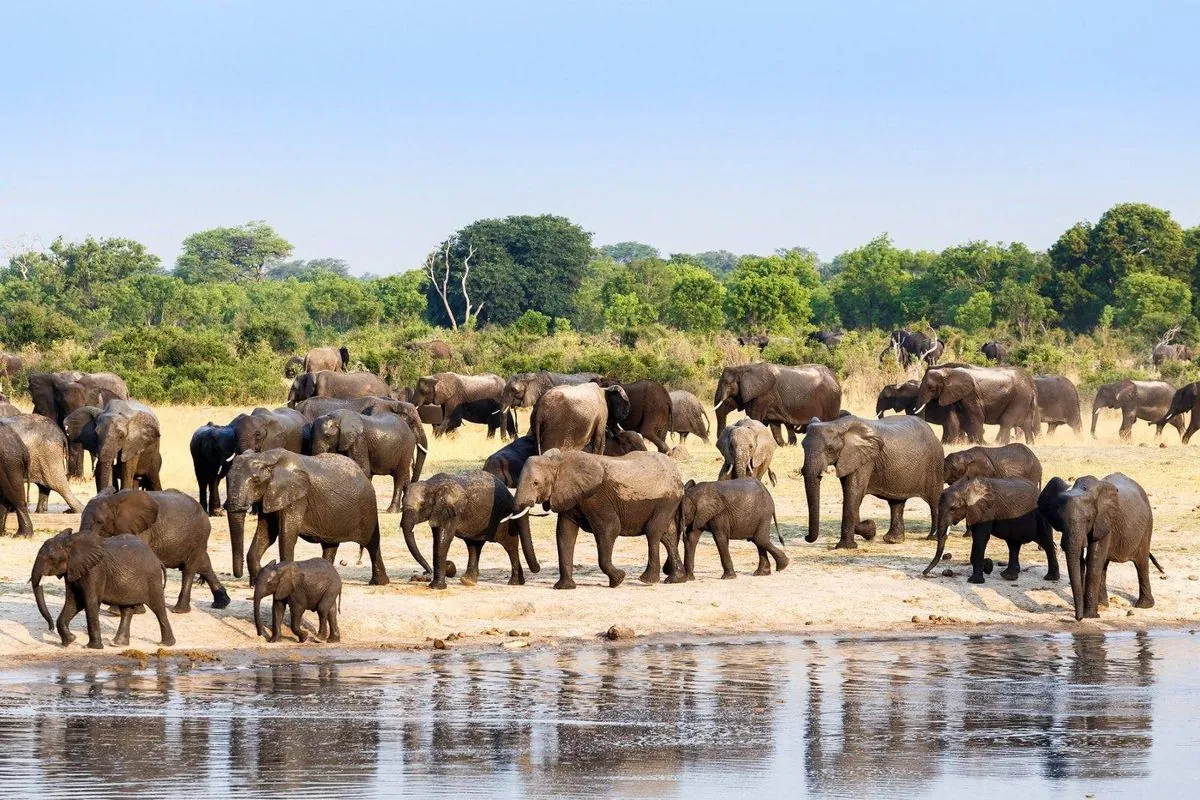In response to a severe drought crisis, Zimbabwe has announced plans to cull 200 elephants. This decision, made by the Zimbabwe Parks and Wildlife Authority (Zimparks), aims to address food shortages and manage the country's growing elephant population.
The El Niño-induced drought has significantly impacted southern Africa, affecting approximately 68 million people. Zimbabwe, home to the world's second-largest elephant population after Botswana, is facing challenges in balancing conservation efforts with human needs.
Tinashe Farawo, spokesperson for Zimparks, stated that the cull would occur in several districts, including Hwange, Mbire, Tsholotsho, and Chiredzi. The elephant meat will be distributed to communities grappling with acute hunger due to crop failures.
This marks Zimbabwe's first elephant cull since 1988, highlighting the severity of the current situation. The decision follows Namibia's recent culling of 83 elephants for similar reasons.
Zimbabwe's elephant population has surpassed sustainable levels, with over 84,000 elephants inhabiting areas designed to support only 55,000. This overpopulation has led to increased human-wildlife conflicts, resulting in 50 human fatalities due to elephant attacks in 2023.
The country's conservation efforts have been successful in growing its elephant population since the 1970s. However, this success has created new challenges. Elephants, the largest land animals on Earth, can consume up to 300 pounds of food and 50 gallons of water daily, putting significant pressure on resources during drought periods.
Climate change is expected to exacerbate these challenges, with predictions of more frequent and severe droughts in southern Africa. This situation underscores the complex relationship between conservation, climate change, and human needs.
Zimbabwe, along with other southern African countries, has been advocating for the reopening of ivory trade through the Convention on International Trade in Endangered Species (CITES). The country currently holds approximately $600,000 worth of ivory stockpiles that it cannot sell due to the global ban implemented in 1989.
While culling remains a controversial management tool among conservationists and animal rights activists, Zimbabwe authorities view it as a necessary measure to address immediate food security concerns and long-term wildlife management issues.
As the situation unfolds, it highlights the ongoing challenges of balancing conservation efforts with human needs in regions facing climate-related crises. The outcome of Zimbabwe's decision may influence future wildlife management strategies across southern Africa.
"It's an effort to decongest the parks in the face of drought. The numbers are just a drop in the ocean because we are talking of 200 (elephants) and we are sitting on plus 84,000, which is big."
